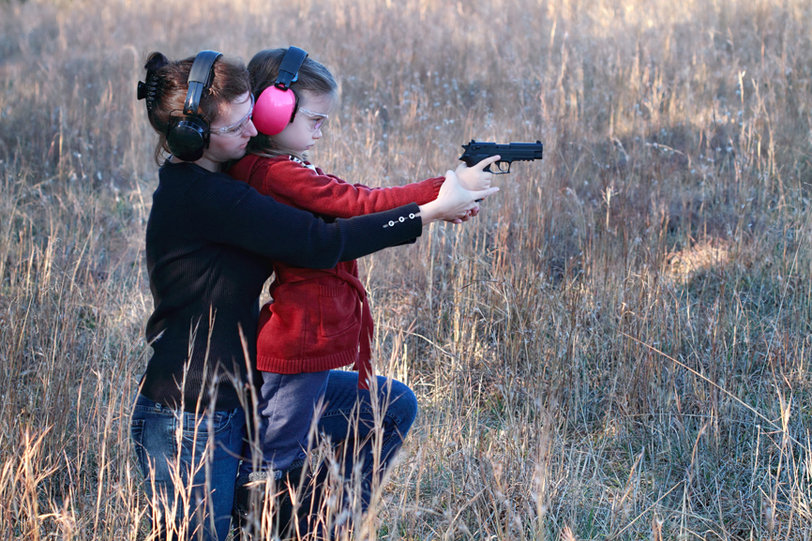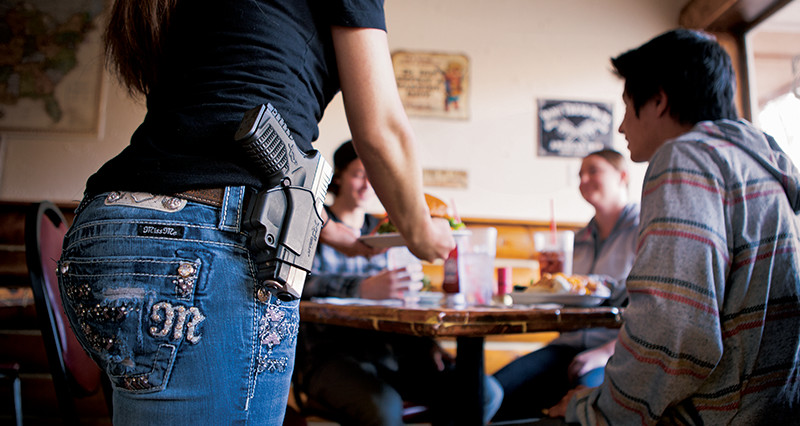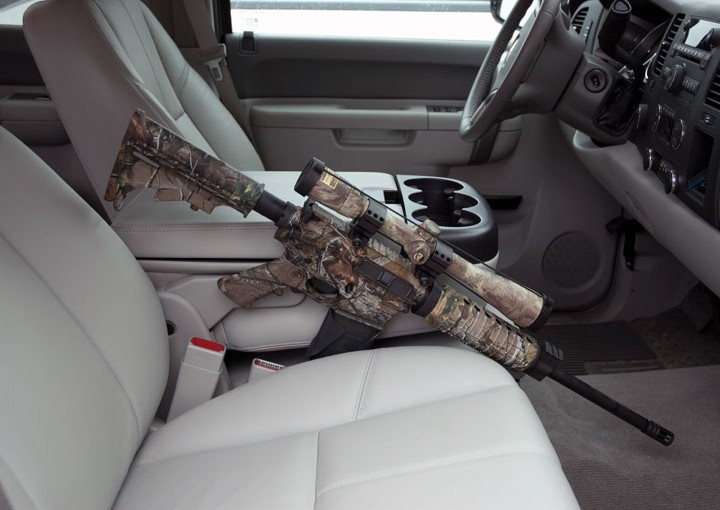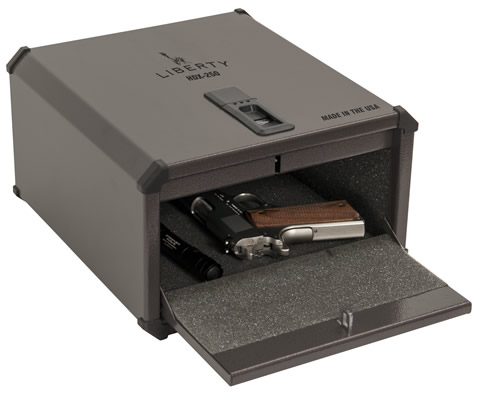
Buying A Handgun
Getting a handgun in Utah is a relatively straightforward process, with only federal handgun purchase laws to follow. There is no additional permit required by the state. What you will need to watch out for are the restrictions that prohibit you from buying a handgun. To buy a handgun, you must:- Be 21 or older;
- Provide state ID; and
- Have an instant background check performed by a licensed firearms dealer.
- Any firearm, including a matchlock, flintlock, percussion cap, or similar type of ignition system, manufactured before 1899 or is a replica of such a firearm;
- A firearm that uses rimfire or centerfire fixed ammunition that is no longer manufactured in the US, and is not readily available; or
- A muzzleloading rifle, shotgun, or pistol, that is designed to use black powder or a black powder substitute, and cannot use fixed ammunition.

One More Thing…
Even if you follow all of these rules, however, there are situations where you are prohibited from owning a firearm, even if you meet all the other requirements above. You cannot own a firearm if you:- Have been convicted of a crime punishable by imprisonment for over a year;
- Are a fugitive from justice;
- Illegally abuse controlled substances;
- Have been adjudicated as mentally defective of incompetent, or have been committed to a mental institution;
- Are an illegal alien;
- Are a former US citizen who has renounced his citizenship;
- Were dishonorably discharged from the US Armed Forces;
- Are subject to a restraining order;
- Were convicted of a misdemeanor crime of domestic violence;
- Have been convicted or are under indictment for any felony;
- Have, within the last 7 years, been adjudicated delinquent for an offense that would be considered a felony if committed as an adult;
- Are in possession of a dangerous weapon and are intentionally in possession of a controlled substance;
- Have been found guilty by reason of insanity for a felony offense or mentally incompetent to stand trial for a felony offense; or
- Are on parole or probation for any felony or on parole from a “secure facility” (i.e. jail).
Don’t Forget About Long Guns!
While you’re at the gun shop drooling over that shiny 1911, you might as well pick up a long gun to go with it! You can never have too many rifles! Luckily, buying a long gun is almost the same process as buying a handgun. In fact, it’s slightly easier to buy a long gun, because the age limit is actually 18 to buy one, compared to the requirement to be 21 to buy a handgun. To buy a long gun, you must:- Be 18 or older;
- Provide ID; and
- Have an instant background check performed by a licensed firearms dealer.
What AboutThe Children?
If you’re under 18, you can still handle firearms in certain situations.
- Have permission of a parent or guardian; or
- Are accompanied by a parent or guardian while in possession of the firearm.
Have Gun, Will Carry
Once you’ve got your shiny new guns in your hands, you’ll probably want to show them off! But be careful! While open carry is allowed in Utah, there are a few things to keep in mind before you run out the door with your Glock on your hip. It is illegal to carry a loaded firearm on any public street without a permit. This means that you can open carry your guns if you want, as long as they are unloaded.Looks Pretty Loaded
As defined by the State, “loaded” basically means if a single mechanical operation on the gun would fire a round. Typically, it would mean a round in the chamber, ready to be fired when you pull the trigger. If your firearm has some other condition where a single operation would cause a round to be fired, then that condition would be considered to be “loaded.” For example, if you carry your handgun, but need to 1) rack the slide and 2) pull the trigger in order for the weapon to discharge, that would not be considered a loaded firearm since it requires two operations to fire a round. The same would apply to any long guns, whether a shotgun or rifle. To open carry a handgun without a permit, then, means that:- Automatic and semi-automatic handguns cannot have a round in the chamber (the safety does not count as one of the operations before firing the weapon);
- Double action revolvers must have the next chamber to be fired unloaded (so the hammer would fall on an empty chamber when the trigger is pulled); and
- Single action revolvers must have the hammer down on an empty chamber.

No permit? No problem
If you don’t have a permit yet but still want to carry loaded firearms, there’s good news! You can carry a loaded firearm without a permit:- On your own property;
- At a business you control (i.e. as the owner or manager); and
- In your residence.
Concealed Carry
In order to carry concealed in Utah, the State requires a CFP. It’s not too much of a hassle to get one, but there are some additional steps and laws to be aware of, so we’ve put it all together in our Utah CCW section. Those of you interested can hop on over to the CCW section and check it out after finishing up here!Truckin’ Along
With all this talk of open carry of unloaded firearms, you’ll want to be familiar with the rules on transporting firearms while in vehicles. Loaded handguns can be carried in your own vehicle or if you have the permission of the owner of the vehicle, even without a CFP. Loaded long guns don’t have this exception, though, so you’ll need to keep them unloaded when traveling, or get started on that CFP application. Without the permit, just make sure your long guns are unloaded, or better yet, stored away (preferably unloaded) in a secure container. The good news is that even if you have to keep your long guns unloaded in your Pelican case, you can rest easy with that loaded handgun by your side!
When To Use Your Gun
All the time! But ideally just at the range or, if absolutely necessary, in a self-defense situation. The whole point of gun ownership, as our Founding Fathers reminded us in the Second Amendment, is to defend our freedoms and our way of life. Sometimes, that means defending yourself and your home against people who want to do you harm.Self-Defense
Because when seconds count, police are only minutes away, you’ll need to be able to defend yourself from threats, whether inside or outside the home. Luckily, Utah recognizes this concern. You are justified in using deadly force only if you reasonably believe that force is necessary to prevent death or serious bodily injury to yourself or someone else as the result of another person’s imminent use of unlawful force or to prevent the commission of a forcible felony. A “forcible felony” basically includes any type of assault, murder, kidnapping, rape, sexual abuse, arson, robbery, or burglary. Of course, you are only justified in using deadly force in these situations if you did not provoke the person into using the unlawful force. These justifications also do not apply if you yourself are attempting to or committing a felony, or fleeing after attempting to or committing a felony. Essentially, you can only defend yourself or someone else if you weren’t involved in causing the situation or committing a crime in the first place. Things get a little tricky if you are engaged in combat, however. The state of Utah requires that you only have a right to self-defense after engaging in combat with someone if you withdraw from the situation and effectively communicate to the other person that you are withdrawing. Of course, it’s usually a good idea to avoid confrontations in the first place if possible.
Things get a little tricky if you are engaged in combat, however. The state of Utah requires that you only have a right to self-defense after engaging in combat with someone if you withdraw from the situation and effectively communicate to the other person that you are withdrawing. Of course, it’s usually a good idea to avoid confrontations in the first place if possible.
Standing your ground
The best way to avoid a deadly situation is usually to just escape it altogether, rather than try to face the threat head-on. However, if you have no other option but to face the threat, you are permitted to stand your ground and use deadly force. In other words, you do not have a duty to retreat, as long as you are in a place where you are legally allowed to be. This means that if you find yourself at a restaurant, and find yourself or others faced with imminent death or serious bodily injury, you can use deadly force to end the threat. You cannot, however, sneak into the manager’s office and expect any use of force to be justified in that situation. Of course, just because you do not have a duty to retreat does not mean you must engage the threat with deadly force. Sometimes the situation may call for a retreat for the safety of yourself and others around you. The use of deadly force is a serious decision to make, so you should always use your best judgment when deciding the best way to respond to a threat.The End!
You made it! You now know everything there is to know about gun laws in the Beehive State! If you are interested in getting a CFP so you can carry your loaded firearms while running errands around town, be sure to check out our Utah CCW section for all the info. If you don’t need to know about the CCW laws just yet, that’s ok too! You can work on your gun collection instead! You might want a nice safe to keep all your new toys though. A sturdy safe can also keep your guns from prying eyes and curious kids, and keep you on the right side of firearms storage laws. As long as you keep your firearms, loaded or unloaded, in a securely locked box or container, or locked with a trigger lock, you will be fine. But it’s always a good idea to keep your guns in a gun cabinet or safe anyway. If you want to start smaller, a gun cabinet or even just a decent handgun safe may be a good investment, so all those rifles can have a quiet place to rest after a busy day at the range. Now get out there and pew pew!






